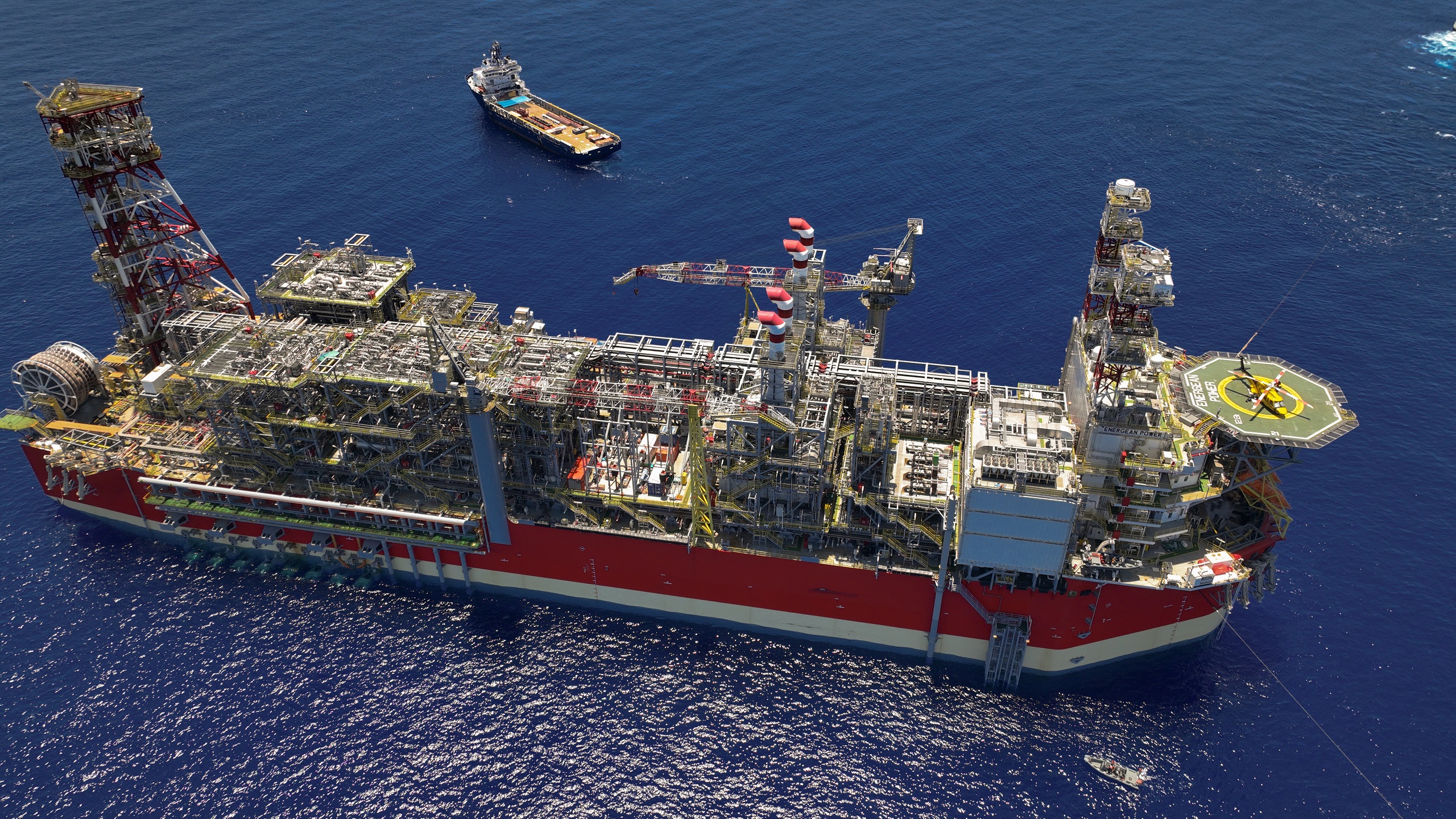American mediator Amos Hochstein arrived in Beirut on Sunday to present a new Israeli proposal to the Lebanese leadership in the indirect maritime border talks between the neighboring states.
Hochstein, the State Department’s senior adviser for energy security, met the Israeli negotiation team led by former Energy Ministry Director-General Udi Adir via Zoom a few days ago and received updates on Jerusalem’s stance on the maritime border and gas fields, which he will deliver to the Lebanese president, caretaker prime minister and parliament speaker.
The border dispute goes back to 2010, when the two countries appealed to the UN, each claiming the other had unlawfully annexed its maritime territory. The issue has recently heated up following assessments that a large natural gas field may be present under the sea in the disputed area. Producing gas there could provide Lebanon with desperately needed revenue, as its currency and energy reserves are almost completely exhausted.
A senior Israeli source involved in the negotiations told The Media Line spoke to, who said that if an agreement is reached on the principles of an accord, Israel and Lebanon might go back to holding direct conversations in the Lebanese border town of Naqoura.
The Lebanese are interested in talking directly, and we have no objection. If they agree on some principles, there’s a good chance we’ll go back to meeting directly.
“The Lebanese are interested in talking directly, and we have no objection. If they agree on some principles, there’s a good chance we’ll go back to meeting directly,” the source said.
A former member of the Israeli negotiation team confirmed that returning to direct talks could be an option.
The senior Israeli source involved in the negotiations also referred to a threatening video released by Lebanese Shi’ite group Hizbullah on Sunday morning, saying it is completely irrelevant to the negotiations.
“[Hizbullah leader Hassan] Nasrallah has an interest to thwart any agreement. But this doesn’t express the official stance in Lebanon, and we have clear messages stating that,” the source said.
“The discussions have nothing to do with the Karish gas field or any developed gas field,” the source continued. “Even in the initial, most unrealistic demands we received from Lebanon, there was absolutely no mention of Karish. It [a Lebanese claim to the field] is a nonstarter.”

Karish FPSO natural gas platform. (Courtesy Energean)
The senior Israeli source involved in the negotiations also talked about the assessments regarding a gas field in the disputed area, saying it is hard to know at this phase if there is any gas in it.
“We proposed an offer that will allow the development of the gas field and preserve everyone’s interests. Lebanon needs this energy, especially as now there’s electricity for only two hours a day in the country,” the party said.
Obtaining an accurate estimate of how much gas the undersea field contains should cost around $50 million-$100 million, while drilling and producing it could take an investment of a few billion dollars.
Hizbullah is showing off by pressuring the Lebanese government. Any suggestion of producing gas [in the disputed area] by an international company is simply absurd. No one [in Lebanon] will agree to that because that means practically becoming a partner with Israel.
However, some Israeli experts are less optimistic about the possibility of an agreement.
“Hizbullah is showing off by pressuring the Lebanese government. Any suggestion of producing gas [in the disputed area] by an international company is simply absurd. No one [in Lebanon] will agree to that because that means practically becoming a partner with Israel,” Dr. Jacques Neriah, a special analyst for the Middle East at the Jerusalem Center for Public Affairs and a former foreign policy adviser to the late Prime Minister Yitzhak Rabin, told The Media Line.
“The same goes for talking with Israel directly. Anyone who thinks there’s still an option for that has no idea what’s happening in Lebanon,” Neriah said.
Karish is one of several gas fields discovered off the Israel coast in recent years, and according to Energean, the company operating it, it should take around 15 years to extract the estimated 100 billion cubic meters of gas there.
“Karish is ready for production, and it will begin soon,” said the senior source. “Nasrallah can threaten all he wants. The maritime border question is and always has been separate from Karish, and it will stay this way.”
You would have to be blind, deaf, or completely irresponsible to ignore the threats. If Israel doesn’t show soon it’s not afraid of Hizbullah, I suspect it could deteriorate into an armed conflict.
Neriah, born in Lebanon, is more pessimistic about Hizbullah’s effect on the indirect discussions.
“This is a chance for Hizbullah to gain some points in public opinion. If there will be an agreement, they’ll say it’s thanks to them. If there’s no agreement, they’ll say it’s proof Israel can’t be trusted. You would have to be blind, deaf, or completely irresponsible to ignore the threats. If Israel doesn’t show soon it’s not afraid of Hizbullah, I suspect it could deteriorate into an armed conflict. I hope I am wrong,” Neriah said.